How to Quickly Improve Your Car’s Gas Mileage
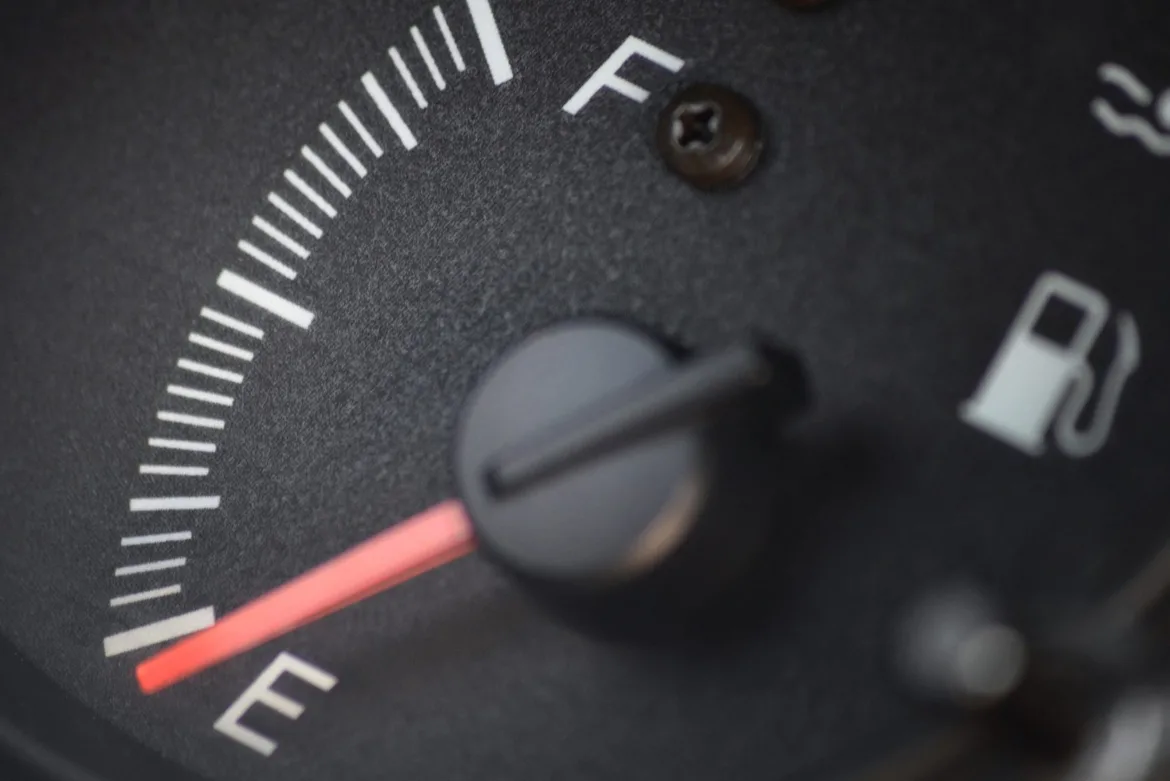
When we’re looking for newer cars, there’s a question that seems to be ubiquitous across all makes and models. “What kind of mileage does it get?” While what we consider to be ‘good mileage’ differs by vehicle class, we can all agree that the more miles per gallon, the merrier. While you can start looking for vehicles that get the best mpg, cars have a few quirks that can increase the mileage of the vehicle you already own. Or help you justify buying a car with less-than-awesome gas mileage, whatever.
Align the front-end
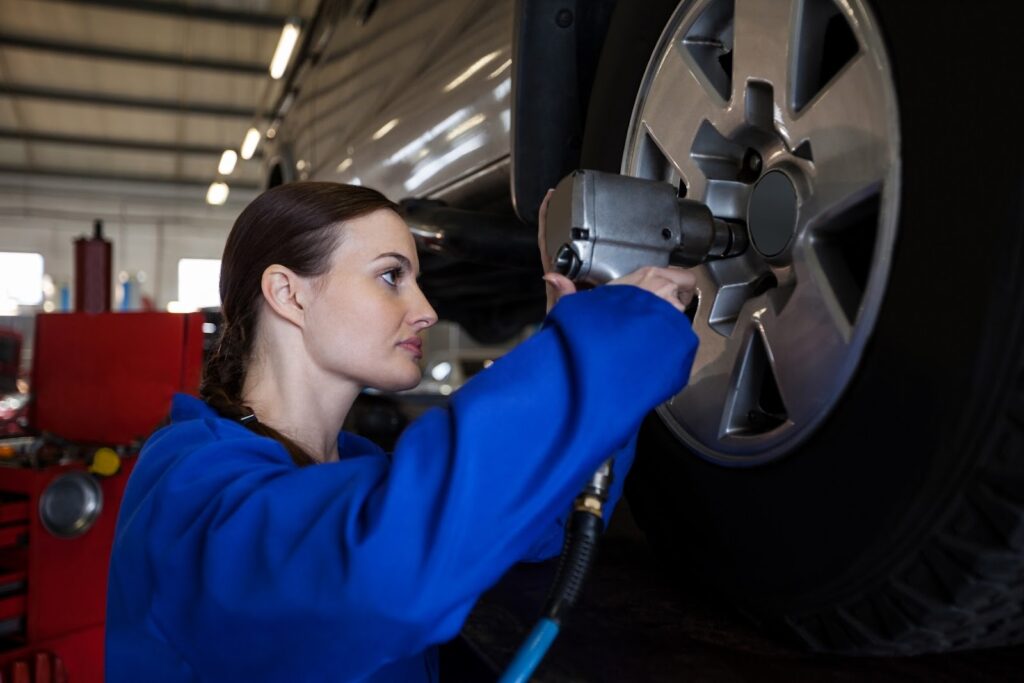
If your front-end isn’t aligned, you’ll see increased wear-and-tear on your tires along with worsening fuel consumption: up to 10% worse, as a matter of fact. Since the engine is working harder, it’ll take more fuel to get to where you’re going. Getting your front-end aligned can save you a lot of money in the long run.
But what does it mean to get your front-end aligned? Well, when it comes to cars and their suspension, there are three main angles, camber, caster, and toe.
All of these angles play a big role in how the car drives. If these angles are out of spec, your car will consume a lot of fuel and will not be safe for the road. Tires will wear unevenly and the steering wheel can pull on the side and not be straight.
So, when you align the wheels, the car will drive straight and will save you a bunch of money on fuel. This is why if you notice that the wheels wear unevenly, and you have increased fuel consumption, it is a good idea to get your car aligned properly. This can be done in many places that change tires. Such as Firestone Complete Auto Care, Mr Tire, and many others.
Overall, aligning your wheels and tires will not cost you a fortune and will be definitely worth it for your fuel economy.
Keep your tires inflated
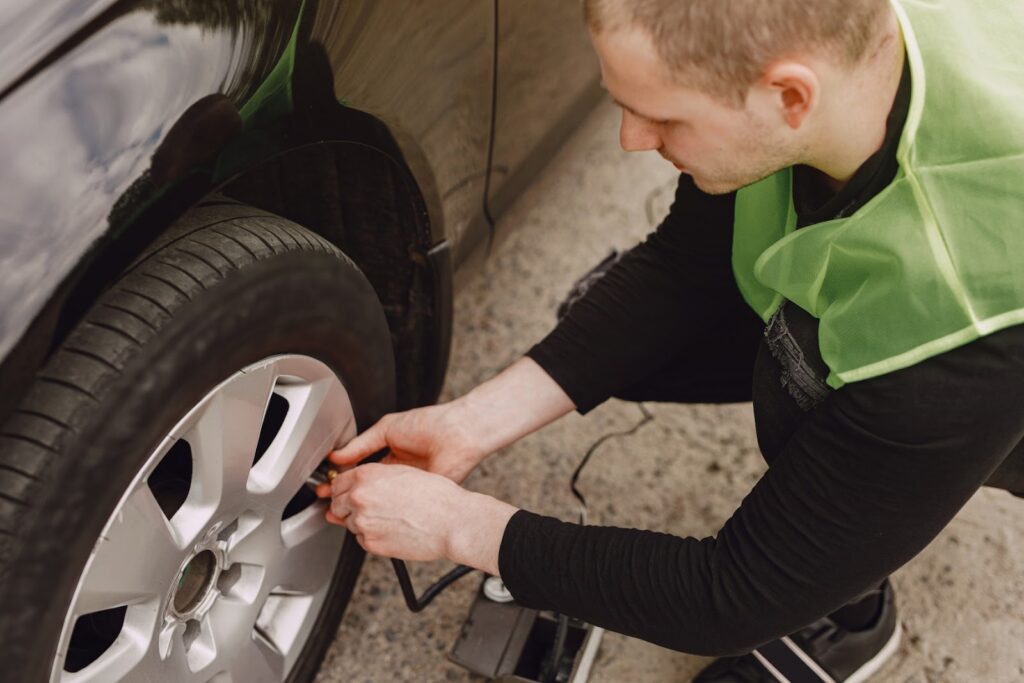
Keeping your tires inflated to the proper PSI is another way to get the best fuel economy for your car. According to Fueleconomy.gov, your fuel efficiency decreases by 0.2 percent for every PSI below recommendation. Not only can you expect better mileage, but properly inflated tires are safer and last longer, too.
You can inflate the tires at your local gas station. There are compressed air stations that you can use for free. You can also purchase a small air compressor for your garage. This way, you will always have the ability to inflate your tires. You can even use this compressor for other purposes. So, we think that this is a good investment if you are serious when it comes to cars.
But in order to keep the tire pressure always in good condition, it is the best idea to inflate your tires with nitrogen. This gas is a much better alternative than compressed air.
Filling your tires with nitrogen will not only improve your fuel economy but also will make your car drive better. You will not lose tire pressure and the car will roll easily compared to the situation when your tires are constantly below the recommended PSI.
Replace the gas cap
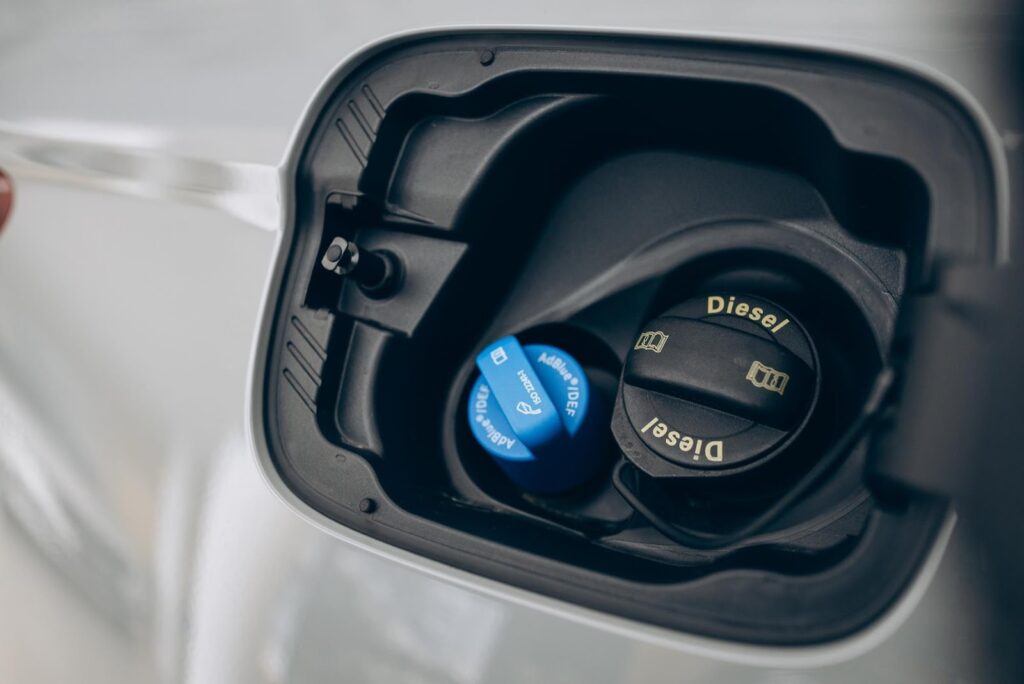
For the best mpg, cars need a proper seal when it comes to the fuel system. The threads of your gas cap wear down with time, and with that comes an improper seal to the gas tank. Turns out this is also an incredibly common cause for a check engine light, so spend the small amount of money to replace your gas cap periodically.
A gas cap is not a lot of money. So, if you notice a check engine light with codes that indicate problems with the EVAP system, it is a good idea to replace the cap with a new one.
The cap probably does not have a good seal and the gas tank is depressurized. Resulting in very high fuel consumption. You can clean off the threads of the cap and try if it works, if not, just replace the component with a new one. It only costs a few dollars online.
Use the right oil
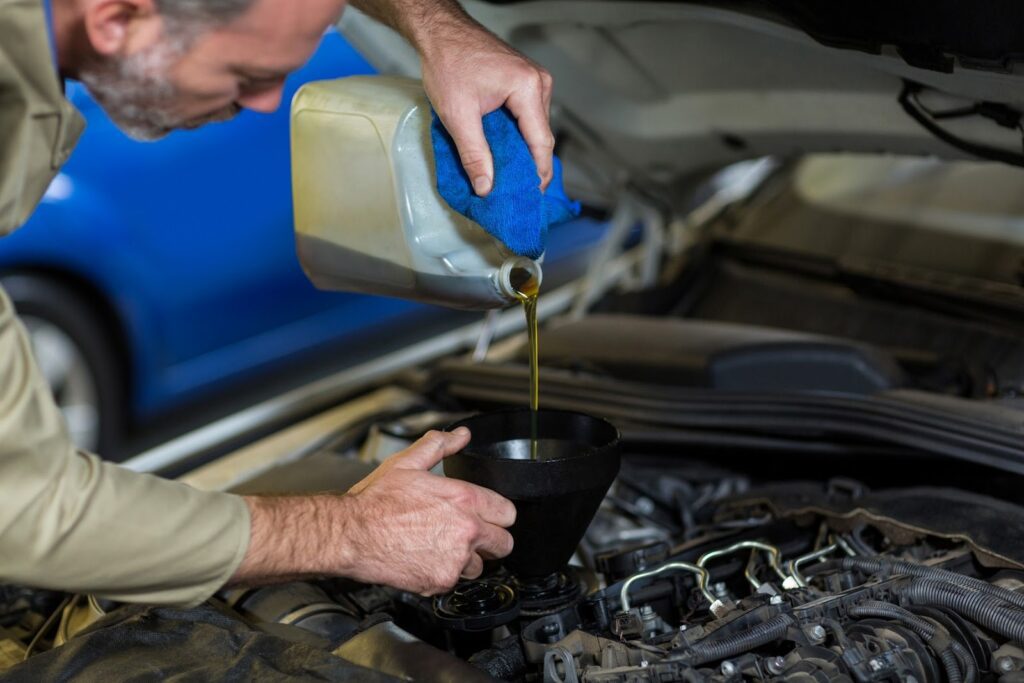
In order to get the best mpg, cars need to use the manufacturer’s recommended type of oil. Using the incorrect oil type can lower your gas mileage by as much as 2 percent, as well as contribute to faster engine component degradation and reduced performance.
Every car has specified recommended oil. We are not talking here about the brand but the viscosity. In other words the thickness of the oil.
This viscosity is variable depending on the outside temperature. So, if you are using engine oil with a different viscosity than recommended will result in poor fuel economy and also with engine damage.
Seals might blow and oil leaks will appear. Not to mention the strain on the components of the engine. You can easily destroy the engine in the process if you are not using the right viscosity. So, learn what type of model you have and check the oil cap. Usually on the oil cap, the right viscosity is clearly stamped. If not, check your driver’s manual for more precise information.
Clean out your trunk
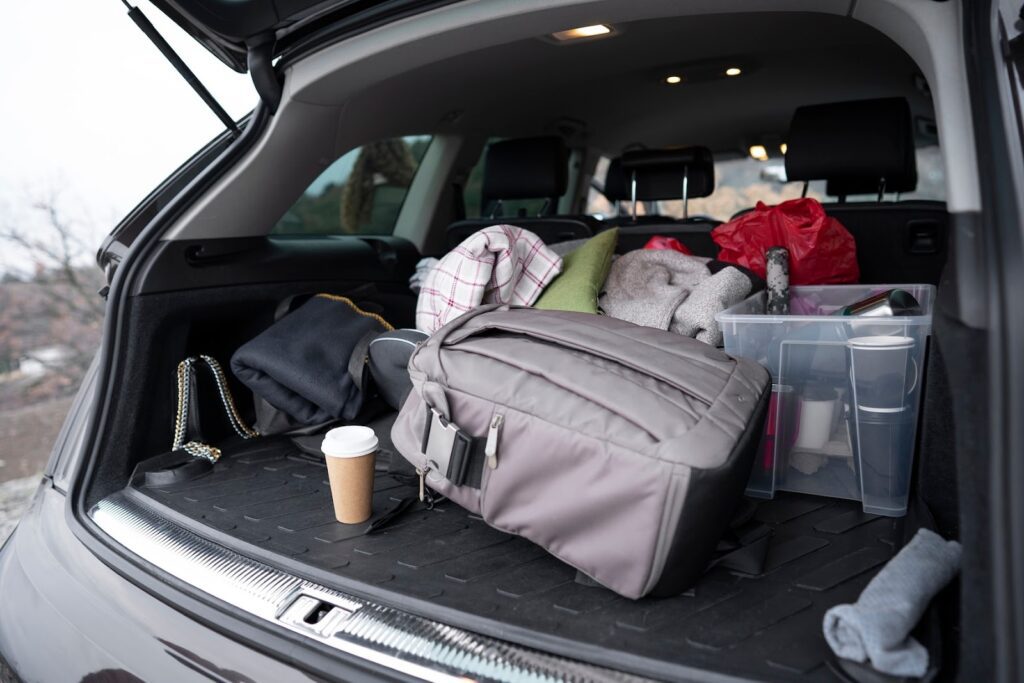
Here’s one that’ll save you both money and space in your car. It’s pretty common knowledge that more weight means more work for the engine, but a lot of us have a habit of letting junk accumulate in the trunk (heh). An extra one-hundred pounds can reduce your fuel economy by as much as an additional 2%.
This is something that not a lot of owners pay close attention to and they drive along with junk that is long forgotten. So, if you carry an extra 100 lbs or more, it could result in poor fuel economy in the process.
That’s why we advise that you clean your car and make sure that it is nice and shiny. This way, your fuel consumption will drop and you will not have problems like increased fuel consumption.
Keep your foot off the brake pedal
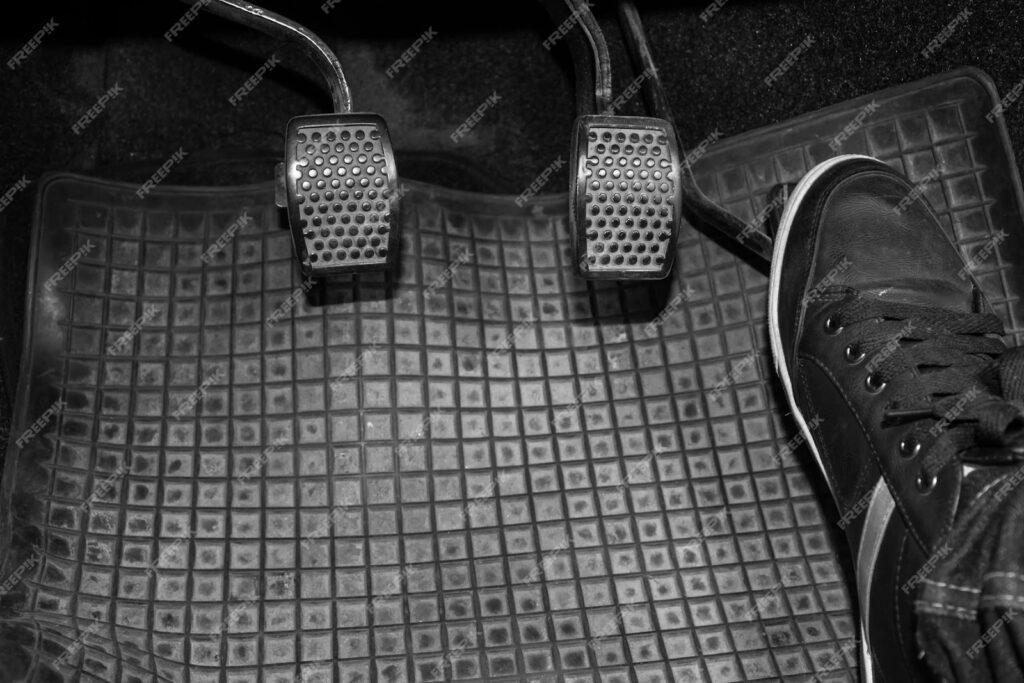
Some rather astonishing research shows us that a much larger number of people than we’d hoped drive with their left foot resting on the brake pedal. While we hoped that number would be zero, it isn’t, so if you do this sort of thing: stop. You’ll wear out your brakes incredibly fast. You’ll also reduce your fuel economy by 35%, and if you’re reading this article, you probably don’t want that.
How this works is very simple to explain. When you break a lot and you come to a stop, you need to apply the gas pedal and add gas. When the car accelerates it burns most of the fuel.
So, if you keep your speed at a certain level, you will potentially avoid stopping too often. This will result in lower fuel consumption and more savings for you. That’s why make sure to adjust your style of driving based on the road conditions. By doing so, you will improve your fuel economy significantly and you will also be safer in traffic.
Slow down a bit
Another thing you should do is slow down a little bit. Don’t accelerate too hard like a maniac. Hard acceleration will not do anything good to your fuel economy numbers.
This applies to both accelerating from a dead-stop and your cruising speed on the highway. If you’re accelerating quicker than you actually need to, you’re probably not saving much time but you definitely are wasting gas.
Quick acceleration requires more energy to move the car forward, hence, more gas. If you track the current MPG, you will notice how the MPG numbers drop significantly when you press hard on the gas pedal. In order to save money on gas, you need to have a smooth and linear acceleration without revving the engine too high. Usually, a max of 2,000 rpm before changing a gear is recommended.
The same goes for driving on the highway: you won’t get wherever you’re going much faster by driving 70 mph instead of 65, but you definitely will consume more fuel. For the best mpg, cars need to be treated like what they are: hunks of metal that weigh thousands of pounds and take energy to propel forward. Keep that in mind.
Avoid Idling
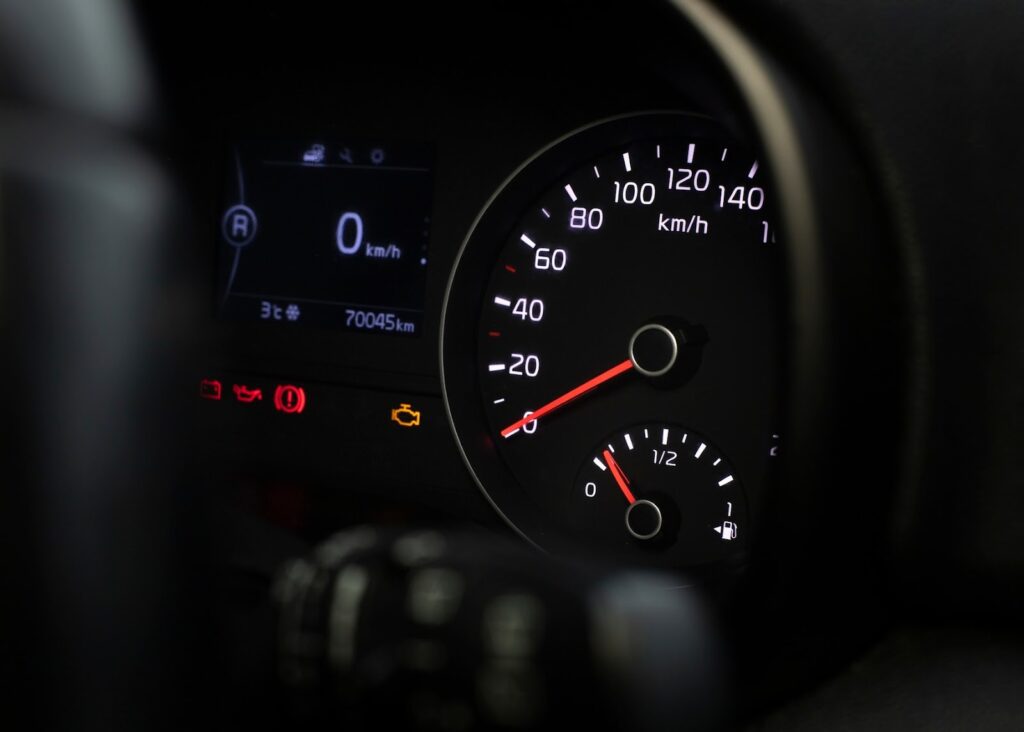
Idling wastes fuel without providing any real benefit. When your car is running but not moving, it’s still burning gas to keep the engine running. This leads to unnecessary fuel consumption. Whether you’re waiting at a long traffic light, stopped in a drive-thru, or you are just sitting in your vehicle while it warms up, idling adds up and can significantly reduce your overall fuel efficiency.
Many drivers mistakenly believe that restarting the car uses more gas than idling, but that’s not the case with modern vehicles. Today’s cars are designed to start efficiently, using minimal fuel to restart the engine. In fact, turning off the car and restarting it is often more efficient than leaving it idling for more than a minute or two. Idling for long periods also increases wear and tear on your car’s engine and components, including the oxygen sensor, leading to higher maintenance costs over time.
In addition to saving fuel, cutting down on idling is good for the environment. Fewer emissions are released into the air, which reduces pollution and helps keep your car running cleaner. If you stop for more than 60 seconds, turning off the engine is the smarter choice. This will improve your vehicle’s gas mileage in the process.
Replace Spark Plugs
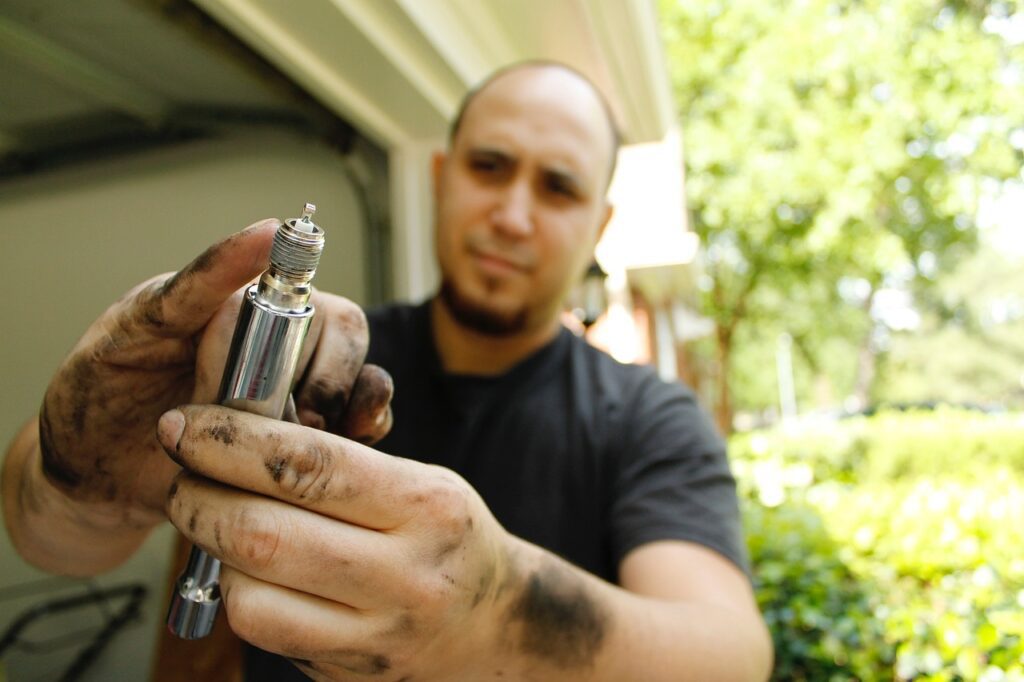
Spark plugs play a vital role in your car’s engine performance. These components ignite the air-fuel mixture in the combustion chamber to generate power. If your spark plugs are worn or dirty, they can misfire, causing incomplete combustion. When this happens, your car needs more gas to keep running, and your overall fuel efficiency drops. This not only affects your gas mileage but can also lead to other performance issues, such as rough idling, reduced power, and poor acceleration.
Replacing spark plugs regularly every 60,000 miles or according to your vehicle’s maintenance schedule, can have a noticeable impact on fuel consumption. New spark plugs ensure that your engine operates smoothly, maximizing the efficient burning of fuel. Worn spark plugs can also cause damage to other engine components, including the oxygen sensor, which monitors the air-fuel ratio. If the sensor isn’t getting accurate readings, it can cause the engine to use more gas than necessary, further reducing fuel economy.
By maintaining your spark plugs, you’re not only improving your car’s performance but also extending the life of other crucial components, ensuring that your vehicle continues to run at its best. Good spark plugs help reduce misfires, increase acceleration, and save you money on gas in the long run.
Replace Air Filters
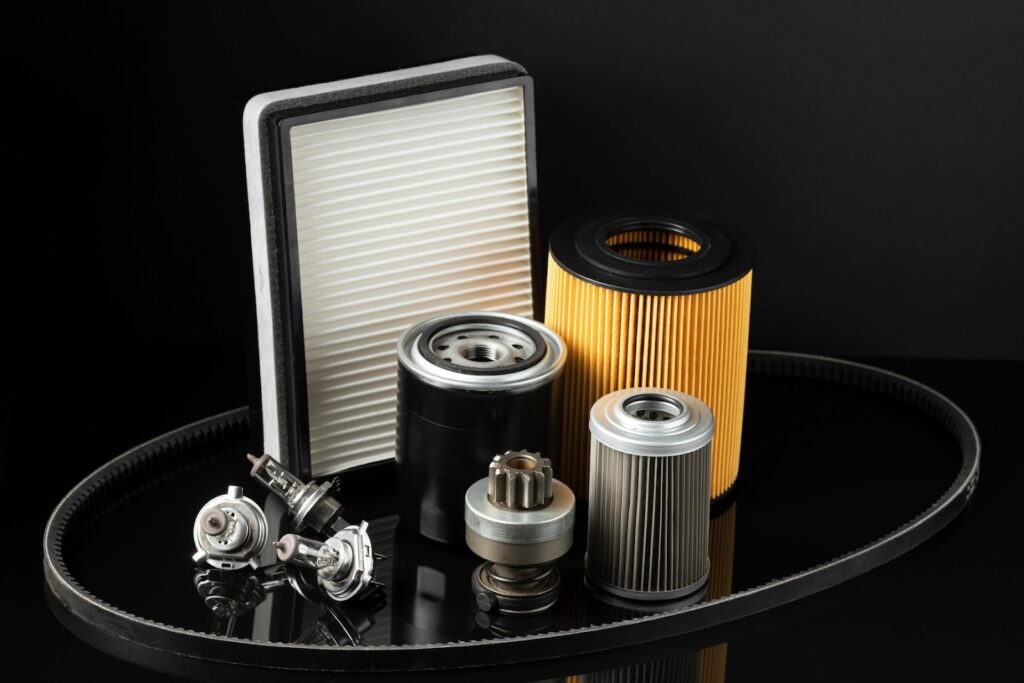
Your car’s air filter is another component that directly impacts fuel efficiency. The air filter prevents dust, dirt, and other debris from entering the engine, ensuring that only clean air mixes with fuel for combustion. Over long use, the air filter clogs up, thus, restricting airflow and causing the engine to work harder. When your engine isn’t getting enough air, it burns more gas to compensate, which leads to poor gas mileage.
Replacing your air filter regularly is a simple and cost-effective way to improve your car’s fuel efficiency. A clean air filter allows the engine to breathe better, ensuring that the air-fuel mixture is optimal for combustion. This helps the engine run more efficiently, improving acceleration, reducing wear on the oxygen sensor, and ultimately saving fuel. Dirty filters not only hurt your vehicle’s performance but can also lead to more significant engine issues over time if left unchecked.
In addition to improving gas mileage, replacing your air filter can help extend the life of your vehicle. A well-maintained filter keeps harmful particles out of the engine, reducing the risk of damage and ensuring smoother operation. For those living in areas with dusty or polluted air, changing the air filter more frequently may be necessary to keep your car running at peak efficiency.
Pay Attention to Warning Lights
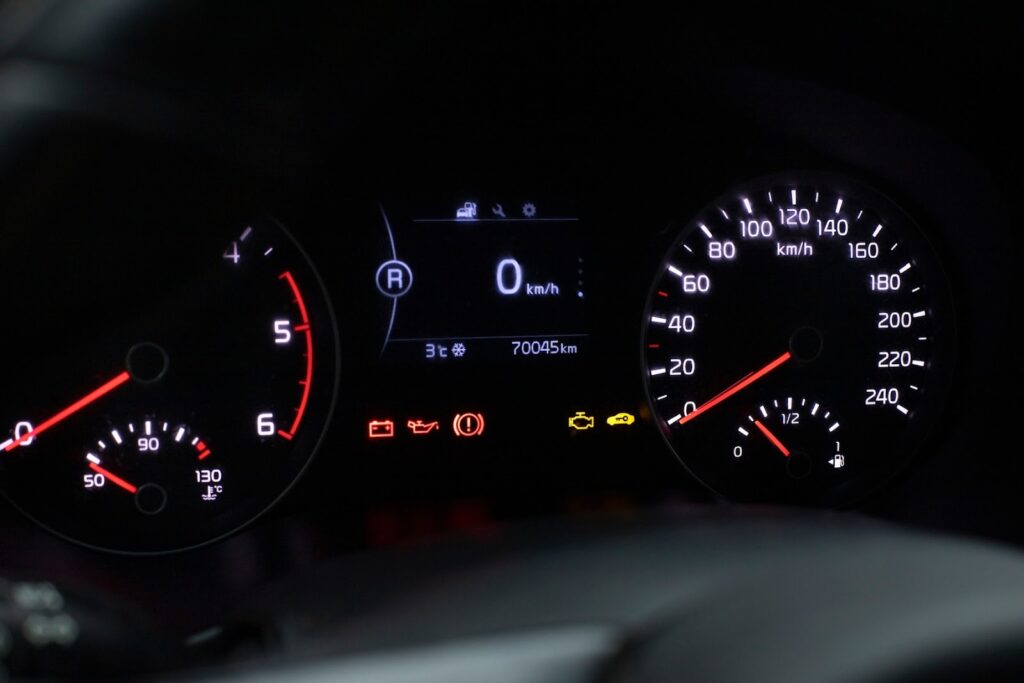
Dashboard warning lights are often ignored by drivers, but they can have a big impact on your car’s fuel efficiency. If you’re seeing a check engine light or a warning related to the oxygen sensor, brakes, or other systems, it’s a sign that something isn’t working correctly. For example, a malfunctioning oxygen sensor can cause your car to burn more gas by providing incorrect data about the air-fuel mixture to the engine’s control unit.
An oxygen sensor plays a crucial role in managing your vehicle’s fuel efficiency. It measures the amount of unburned oxygen in the exhaust and helps regulate the air-fuel mixture for optimal combustion. If the sensor is faulty, your engine may run too rich (too much fuel) or too lean (too much air), both of which reduce fuel economy and can increase emissions. Replacing a faulty oxygen sensor can immediately improve your car’s gas mileage.
Similarly, a brake system warning light could mean that your brakes are dragging, causing unnecessary friction and resistance, which makes the engine work harder. Driving with a malfunctioning brake system not only reduces your fuel efficiency but also poses safety risks if you are driving like this. If your vehicle has any warning lights on, it’s essential to address them as soon as possible to avoid costly repairs and improve your car’s overall performance and fuel economy.
Park in the Shade
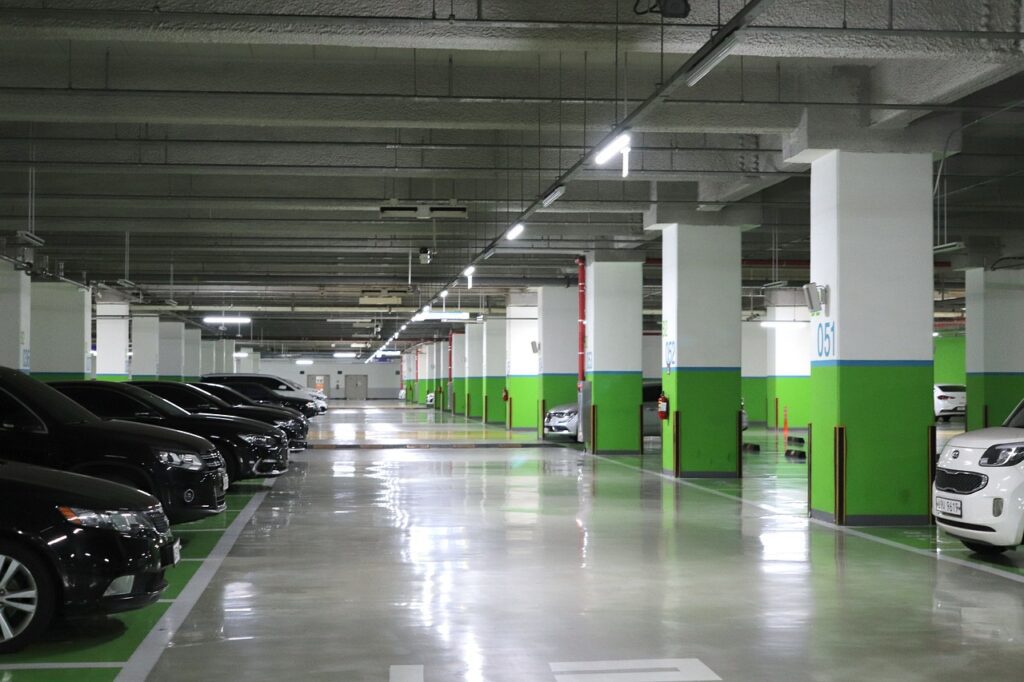
While parking your vehicle in the shade might seem like a simple comfort for drivers, it can actually help improve your car’s gas mileage. When your vehicle sits in direct sunlight, the interior heats up significantly. As a result, you may need to crank up the air conditioning when you start driving to cool the cabin down. Running the air conditioner puts extra strain on your engine, causing it to burn more fuel.
By parking in shaded areas or using a sunshade to block the sun, you can reduce the temperature inside your vehicle. This means less reliance on the air conditioning, which in turn lowers your car’s gas consumption. Over time, these small changes can add up to noticeable savings at the pump.
In addition to improving fuel efficiency, parking in the shade also protects your vehicle from sun damage. Prolonged exposure to direct sunlight can cause your dashboard, seats, and other interior components to fade or crack. Keeping your car cooler when parked not only saves fuel but also helps preserve the overall condition of your vehicle.
By implementing these habits, you can ensure that your car runs more efficiently, helping you save gas and money.
Get the best mpg cars on AutoBidMaster
If you’re looking for the best mpg cars, you’ve come to the right place. Just register with us (it’s free!), place a 100 percent refundable deposit, upload your government-issued photo ID or passport, and start bidding. If you have any questions you can contact us and we’ll be happy to help.
- Buying Salvage Cars: What to Expect on Auction Day - May 22, 2025
- Is Buying a Hail Damage Car Worth It? A Detailed Guide - December 2, 2024
- Affordable Luxury: The Best Budget Luxury Cars for Families in 2024 - November 21, 2024